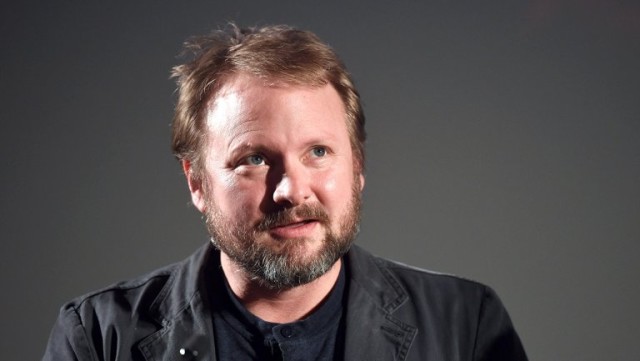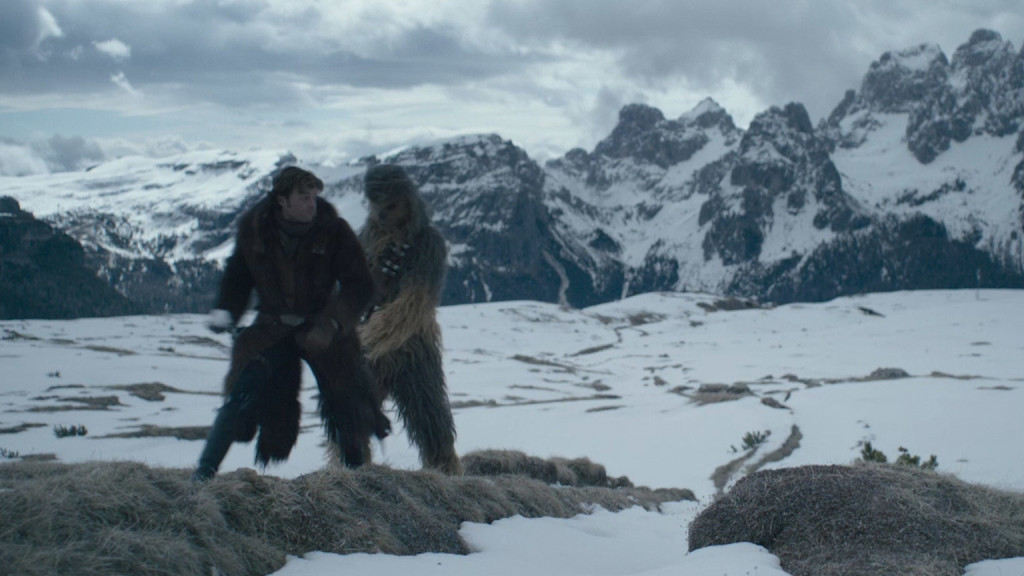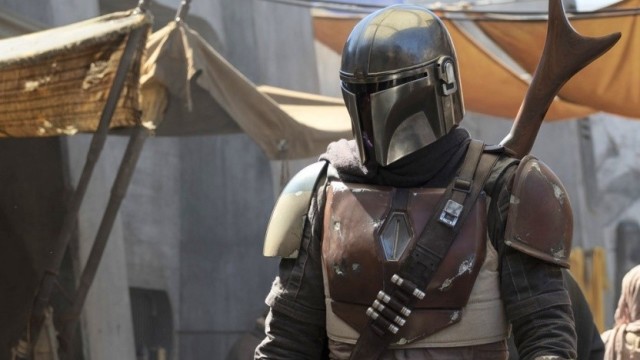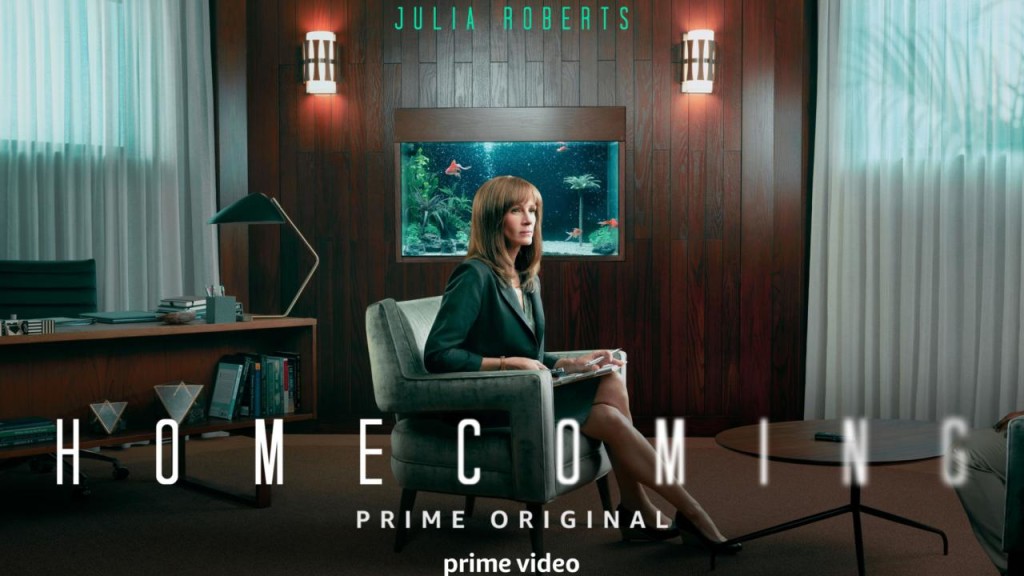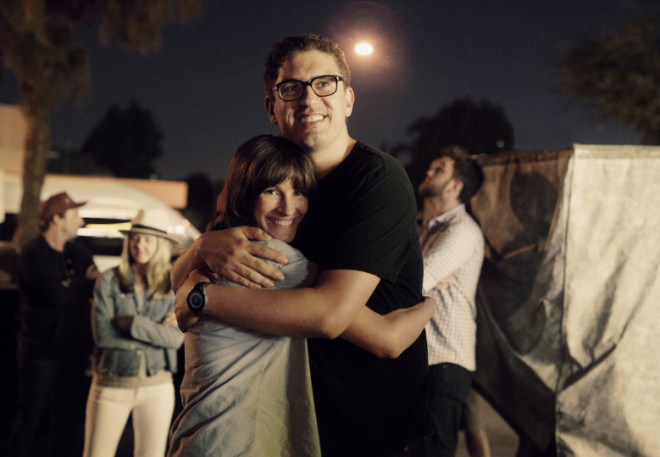I’ve been watching the Star Wars franchise closely over the last few months with heightened curiosity. I continue to love Star Wars more than any other property due to the way the original trilogy taught me how far imagination can take you. Without Star Wars, I think all of our lives would be a little bit duller. But like a lot of fans, I’ve been skeptical of the way the franchise pendulum has swung as of late, and it makes me doubt that they know what to do next. I realize that ripping into Star Wars is hella-easy to do. As the biggest internet dart board of them all, you can get tons of hits simply by titling your article, “I Hate The Last Jedi and If You Don’t Agree With Me, You’re a Moron.”
But that’s not what this is about. This post was written more out of concern than anger. I see this property that I love more than anything potentially falling into the Sarlac Pitt, where, in its belly, Star Wars will find a new definition of pain, as it is slowly digested over a thousand years.
My gripes begin with The Last Jedi. We can argue all day about whether Rian Johnson was the right guy for the job. But, at the time, nobody knew he had the potential to make a bad movie (well, I did, but that’s another story). It would seem that his quirky sensibilities and darker voice were the right fit for what was supposed to be the “darker” middle part of this trilogy. But, ultimately, the fact that Johnson made such a divisive film is burying the lead. The real issue here is that Kathleen Kennedy gave him free reign to do whatever he wanted, without worrying about how his choices would affect the remainder of the trilogy. Even the biggest Rian Johnson supporters had to admit that there’s nowhere for the third movie to go now. The big bad guy’s dead. And the second big bad guy has already been defeated twice by the hero. So what, exactly, are we looking forward to?
Meanwhile, Kennedy couldn’t keep her hands out of the other Star Wars cookie jars. She ordered (rumors suggest) 60% of Rogue One to be reshot, and all of Solo to be redone, firing both sets of directors in the process (although Gareth Edwards got to keep his name on Rogue One). Here were two movies, one of which would’ve likely ended up grossing the same amount of money had Kennedy not intervened (Rogue One), and the other, with the way more interesting directing vision of Phil Lord and Chris Miller, would’ve almost certainly grossed more. There’s a deleted scene in the Solo film that Lord and Miller shot, where Han and Chewie are throwing snowballs at each other, which was ten times funnier than anything that appeared in the film we saw.
I found it strange that she chose these movies to meddle in, then, as opposed to the movie that needed meddling the most – The Last Jedi. The choices in that movie were way too radical (killing the ultimate bad guy) and even more off-brand (severely altering the personality of the series’ most beloved character) to casually ignore. This tells me that Kathleen Kennedy doesn’t understand the franchise. She understands the broad strokes of it. She understands how to make movies in general. But she doesn’t understand the deep tissue of Star Wars, which is what’s required to make great Star Wars movies.
This leaves us in an awkward place. Solo’s failure has killed off the sideshow efforts of both a Boba Fett and Obi-Wan Kenobi movie, but I think that’s a blessing in disguise. This franchise needs to move forward if it wants to thrive. Going back to old characters is only going to keep it stuck in the mud. With Disney now confused about the future of their Star Wars features, they shifted all of their attention to TV, specifically shows that will debut on the new Disney Streaming service. These include Jon Favreau’s “The Mandelorian,” and “The Further Adventures of Rogue One’s Cassian Endor.”
The eye test on these projects would lead one to believe that two completely different people set them up. On the one hand you have The Mandelorian, whose mysterious similarity to one of the franchise’s most popular characters indicates a creator in touch with and respectful of the franchise. On the other, you’re building a show around the previous adventures of a bad Han Solo knock-off who was killed off in his movie. So you produced a movie about the previous adventures of the most popular Star Wars character ever who had just been killed off, and that bombed – but you think repeating this process with a lesser version of the character is going to work? That choice has the fingerprints of Kathleen Kennedy all over it. It’s so tone-deaf that it actually hurts your ears.
This leaves us with the last two announced Star Wars projects (Rian Johnson Trilogy and Benioff and Weiss Trilogy) that aren’t as “announced” as one might think. A true announcement includes a release date. And neither of these projects have that yet. This indicates fear on the part of Disney. They clearly don’t know what to do with Star Wars features at the moment. In a perfect world, they’d see how Episode 9 does before making any big decisions. But Episode 9 is released next Christmas. And if Disney wants a Star Wars movie in 2020, they’ll need to announce it soon. With Benioff and Weiss finishing up Game of Thrones, I’m not sure that can happen. It’s more likely that Johnson’s first movie would get a green light. But I suspect that there’s a lot of consternation at Disney about whether Johnson should get another ride on the Jabba The Hut ferris wheel. Which leaves me to wonder if Disney will sit Star Wars out in 2020. It seems like an odd choice. They’d potentially be leaving hundreds of millions of dollars on the table. Then again, maybe they’ll want to give that entire year to The Mandelorian.
Of the two trilogies in development, I’m way more interested in the Benioff and Weiss films. All rumors indicate that they’re going back to the Old Republic, hundreds (thousands?) of years before the events of Star Wars. This would allow them an entirely new aesthetic to play with, as well as being able to create characters without the handcuffs of the original trilogy wrapped tightly around their wrists – a problem that has hampered Star Wars ever since they began making prequels. I also loved the Old Republic video game. So to go back to that time seems exciting.
I don’t know what to make of the Rian Johnson trilogy. On the one hand, I don’t think he gets Star Wars. The weird Abbot and Costello phone call between Poe and Hux at the opening of the movie made me feel like I’d stumbled across the Last Jedi outtakes. And every major character he introduced into the franchise – Holdo, DJ, Rose – were debatably terrible. People knock JJ’s film as weak but he gave us Kylo Ren, he gave us BB-8, and he gave us Poe. Rian Johnson didn’t give us anything.
With that said, I admit that Johnson would do better with a clean slate. I think a big reason why his movie didn’t work is because he didn’t like any of the characters that were handed to him. He makes Kylo Ren destroy his helmet. He kills off Snoke. He has Finn play second fiddle to his boring-as-dirt character, Rose. He loses count of how many lessons Rey has to learn. For a Rian Johnson Star Wars movie to work, he needs to create the characters himself. And this new trilogy would allow him to do so. Do I personally think another Rian Johnson Star Wars movie would work? No. But there’s probably an audience out there that would enjoy it.
I’m going to finish this rambling post off with a bold prediction, which is that two things are going to happen that radically shift the balance of power back at the Star Wars headquarters. I think Episode 9 is going to do worse than Episode 8, mainly because there’s no story left to tell. This is the one area of this article I can speak on with expertise. I know how stories work. There’s no story left to tell here. JJ will do his best. But he’s been painted into a corner that can’t be painted out of. Kathleen Kennedy will be fired as a result. Meanwhile, Jon Favreau’s Mandelorian will do well, and he will be anointed the head of Lucasfilm moving forward, which I believe will be great for Star Wars. Favreau loves Star Wars. He understands Star Wars. He’ll be a good guy to steer this ship.
That’s all and may the Force be with you.
Genre: Comedy
Premise: In the fast-rising sport of Bricklaying, an anti-doping agent and disgraced former champion must take down the champion’s former nemesis, who they suspect is using a bricklaying-enhancement drug known as “Brick Dust.”
Why You Should Read: Bricks of Glory was inspired by a real life event called the Bricklayer 500 which takes place in Vegas every year. They take the top 20 bricklayers from around the world and compete to see who can build the highest (and most structurally sound) brick wall in 60 minutes. A friend of mine’s husband won the Regional Competition in my area so I went to Vegas to watch the show and attended the World of Concrete convention as research. Man, what a trip. I mean they seriously treat this like a major sporting event! I find it so hilarious! So in my script, I completely exaggerate this and make it a much bigger, funnier, spectacle of a sport. Bricklayers use flair, like lighting their walls on fire and juggling bricks, and the competition is so fierce, they resort to taking performance enhancing drugs. I’ve put a lot of work into this script, even doing table reads with stand up comedians to help me punch up the jokes. But if you want to see what inspired it, here’s a video recap of the Bricklayer 500 which should sell it better than I ever could: https://youtu.be/zR69ZFdldH0
Writer: Alison Parker
Details: 103 pages
It’s been 20 years, but the sequel to one of my favorite movies ever – Braveheart – has FINALLY come out (The Outlaw King). Yes, the adventures of Robert the Bruce, starring Chris Pine, arrived on Netflix this morning. The film is stuck at 60% on Rotten Tomatoes. But keep in mind that most of those reviews came in before the director cut 20 minutes from the film after festival showings, massively streamlining it. I’ll be watching Braveheart 2 this weekend and reviewing it Monday.
Today, we’re taking on one of my favorite AO comedy premises of 2018. I’m really excited about this since comedy gets a bad rap on this site. This sounds like a truly fun idea. And while kooky sports comedies have fallen out of favor in recent years, it’s a genre that can easily get hot again. Will Bricks of Glory be the script to do it? Let’s find out!
In the 1960s, when sports like baseball and football grew to record-breaking ratings, greedy sports CEOs looking to take advantage of their fans began charging unheard of sums for balls. The strategy backfired, and within a couple of years, fans completely abandoned ball-centric sports, sending all major leagues into bankruptcy. All of this allowed for non-ball-related sports to flourish, which is how bricklaying became the biggest sport in the U.S.
It’s now 1987 and the star of the sport is 27 year old Wayne Walker, whose theatrical style and killer catch-phrase (“Get laid!”) made him an instant celebrity. His number one fan is his young daughter, Harley, who couldn’t be more proud of her dad. That is until it’s discovered Wayne is using steroids to win! The disgraced champion is stripped of his trophies and given a 20 year ban from the sport!
Cut to 2007 and Harley now works for the World Anti-Doping Agency. Harley is given a task from the president of the agency himself. There’s a new super-powerful steroid being used in bricklaying called “Brick Dust.” The president asks Harley to reconnect with her estranged dad, get him to enter the Bricklayer 500, and exploit his contacts to identify who’s using the steroid so they can shut them down. Along the way, Wayne figures out what’s going on, but forgives his daughter, then enlists her as his bricklaying assistant. The two then team up to try and win the Bricklayer 500 together!
From the moment bricks started getting laid in Bricks of Glory, things were uneven. Alison invents a world where balls become too expensive and all sports collapse, paving the way for bricklaying to become the biggest sport in the world. My issue with this is that you don’t need it. You could popularize bricklaying without having to mention other sports. By introducing this loopy mythology, you rewrite the history books. I mean, we’re supposed to believe that since the 1980s, there has been no basketball, baseball, football, or soccer in the world. I know this is a comedy but that’s some MAJOR buy-in for a premise that didn’t need it.
From there, we have several time issues. The first part of the movie takes place in 1987. A featured scene in that section has our hero being tazed. But police didn’t have tazers in 1987. We then jump forward 20 years, where the rest of the movie takes place. So this movie takes place in 2007? That feels like a really odd year to set a mainstream comedy in if it doesn’t need to take place in that year for the plot to work. If you’re going to set a movie close to modern day, wouldn’t it be smarter to just set it in modern day?
Just to take you into the mindset of the seasoned reader, I’m assuming one of two things at this point. One, that the script is old and the writer never updated the timeline. Or two, they wanted Wayne’s heyday to be in the 80s because it’s funnier than the 90s. They also didn’t want Wayne to be too old when his ban was over, therefore choosing a 20 year ban (making him 47) as opposed to 30 years (making him 57) and accepted the year 2007 as the story year because they didn’t want to do the hard work to figure out how to get us to 2018.
I’ve told you this a million times already but I’ll say it again. If a script starts sloppy, it’s almost impossible for it to recover. I’ve already made so many judgements by this point that I’m nowhere near where the writer needs me to be – which is inside the story, not questioning anything. Again, I realize this is comedy. You can’t apply too much logic. But I also know that comedy works best when it’s simple. And it seems like way too much effort was put into an opening that could’ve easily introduced this premise in a simple way. The concept of bricklaying as a sport alone is funny! You don’t need a bunch of nonsense surrounding it.
As for the plot, I liked that the story was built around a family relationship. I think that’s smart. It grounds the story. It allows us to connect to the characters, as we’re rooting for this broken relationship to be fixed. I just found the whole steroid thing to be uninspired. Who cares about steroids in sports these days? Nobody. But there’s a way bigger screenwriting-related issue at play here. When you come up with a unique concept, you want the problems that arise to be related specifically to that concept. In other words, steroids can be applied to a hundred sports. What’s unique about bricklaying?
I like the idea that people are cheating in the sport. So maybe they suspect that the villain is using an illegal type of brick that’s 10% lighter or something. Or he’s using some caulk (is that what it’s called) that’s 50% stickier, allowing him to stack bricks quicker. Use your imagination. But steroids? I feel like I’m stuck in a time-warp with that storyline.
Bricklaying as a sport is a funny premise. Let’s not overcomplicate it. Set the story in the present. Wayne has been the sport’s poster child ever since videos of him bricklaying went viral a year ago. He’s recently gone Hollywood and isn’t doing the work (think Ronda Rousey). This has allowed a new young Justin Bieber like phenom to gain popularity (who beats him in the regionals). With the Bricklayer 500 coming up, everyone’s picking sides. Use the Rocky 4 structure. Wayne fears that he’s too old to hang with these young guns (which is funny since the sport has only been around for a year and he’s 28), and has to train with the original bricklayer who started it all, go “back to his roots” so to speak, to defeat this young upstart.
Script link: Bricks of Glory
[ ] What the hell did I just read?
[x] wasn’t for me
[ ] worth the read
[ ] impressive
[ ] genius
What I learned: Times, ages, and dates. Readers are really good at picking up weird time-related issues in scripts. Which is relevant because timing is always changing in scripts. You might decide in your third draft, for example, that your hero’s brother should be 15, not 12. But then you forget to change the age later in the story, when you’ve jumped forward 5 years. You introduce this older version of the brother as 17 (12+5) as opposed to 20 (15+5). When you forget to do this stuff, it looks sloppy. It feels like you’re not on top of things. And that’s how I felt here. Just the fact that the story randomly takes place in 2007 is bizarre to me. And most readers are going to notice that. As annoying as it is, get your times, ages, and dates sorted out before you send your scripts anywhere. It seems like a small thing. But readers tend to judge this stuff harshly.
Yesterday, in response to the Nicholl-winning script, Numbers and Words, coupled with a larger discussion about Nicholl’s propensity to reward scripts with strong social messages, long-time thoughtful contributor Scott Serradell said this in the comment section:
I’m a little funny about the whole goings-on with Nicholl. I just question their legitimacy a bit if writers — knowing what advances in the Nicholl ranks — can then tune their stories to hit the right marks. Is that just tailoring? Or a polite form of trolling?
Well, let’s find out: My next script (and Nicholl entry) is titled “The Only Gay Bar in Gaza” — and it’s basically the brief (but beautiful) tragic romance between an Israeli man and a Palestinian man. Right there, I think I’ve got about 3 or 4 “message” boxes checked off. If I add a “based on a true story” it might just work!
I replied to Scott by saying if he really wrote that script and entered it into the Nicholl, I could guarantee, based on the concept alone, that it would make the semi-finals. If the execution was better-than-average, there’s a good chance it would be a finalist. Scott responded with,
But something about that ignites my cynicism. I mean, that little pitch above took all of 5 minutes to conjure up. And it certainly wasn’t because it was some personal story burning to get out; I merely took an assessment of what attributes the judges might be looking for and tailored (or trolled) my response accordingly. Is it right? Is that ethical? Well, if those are the rules of the game, does any of that matter? — If the broader goal is to get recognized by the industry, am I not obliged to do whatever it takes to set myself outside the pack?
That got me thinking. Not about the Nicholl. But about what happens when you remove yourself from the equation and generate ideas solely based on what you think the gatekeeper will respond to. Are you then better equipped to come up with successful ideas, similar to what Scott was able to do in this circumstance? The crippling x-factor in a screenwriter’s pursuit of writing a breakthrough script is the personal attachment he or she has to the idea. Writers often become fixated on commercially inert concepts simply because they’re obsessed with an aspect of the idea that they have a personal connection with.
This is true of every writer. Even professionals. How many ideas do you have on your computer that you love despite nobody else giving a damn? The reason for that is we have an intense connection to either the character, the concept, or the theme, that clouds our ability to judge the concept objectively. So today I’m asking, what if you removed the variable that’s clouding your judgement? What if you tried to come up with ideas that you, yourself, would never write, but you’re positive would make billions of dollars at the box office? Do you become a better idea-generator under those circumstances?
To see if this is the case, apply the same logic to Hollywood that Scott did with Nicholl. What does Hollywood like? The people who visit this site know the answer to this question better than anybody. They like superheroes. They like giant monsters (King Kong, Robots, Godzilla, sharks). They like horror. They like a guy with a gun. They really like a girl with a gun. Time-travel. Serial killers. Aliens. They like two-handers, especially action-comedy. They like biopics about people who led fascinating lives. They like true stories that involve heroism. They like the apocalypse. They like heists. They like irony.
Today’s post is more of an experiment than anything. Maybe my theory is wrong. But I’m curious to see what you guys would pitch if you had zero vested interest in your idea, and were only pitching what you were convinced Hollywood would go bonkers over. Is it as simple as saying, “A biopic about Horace Smith and Daniel B. Wesson, the founders of Smith and Wesson? Here’s my routing number. Transfer the 5 mil by Friday, thanks.” Or “A female FBI agent is tasked with putting together a team to take down the biggest crime organization in the city, which happens to be led by her father (or mother).”
Remove yourself from the equation and pitch your surefire Hollywood hits in the comments. Upvote any pitches you like. Let’s prove or disprove my theory by the end of the day.
Our first look at one of the 2018 Nicholl Winners!
Genre: Drama
Premise: A gifted young black mathematician’s life is thrown into disarray after a terrible accident sends him to prison.
About: Today’s script was one of the four WINNERS of the 2018 Nicholl Contest, the most popular of all the screenwriting contests.
Writer: Grace Sherman
Details: 117 pages
What’s the only thing that gets screenwriters talking more than a two-page preface proclaiming one’s awesomeness and that all men are evil? A Nicholl winning script, that’s what! This one came recommended to me by commenter, Da Choppa. I find that he and I see eye-to-eye on a lot of screenplays, so I was excited to check it out.
I have a love-hate relationship with Nicholl. I feel that they prioritize a script’s message over its storytelling, whereas for me it’s the opposite. With that said, they usually find a few talented writers every year, so it’s worth checking out who won.
15 year-old DeMarcus Daniels lives in the ghetto with his mother, who’s dating a no-good dickhead loser, Nate. DeMarcus doesn’t plan to be living this life for long, though. He’s a borderline genius when it comes to mathematics, and his goal is to solve the most difficult math problem ever created, The 500 year-old Pythenian Hypothesis.
DeMarcus is one of two kids from his neighborhood who commute to a rich white school in the suburbs. The other is 12 year-old child prodigy, Beth, a bookworm who’s constantly pushing DeMarcus to read more. DeMarcus considers this Harry Potter dork an annoyance, and mostly keeps her at arm’s length.
One day, at home, DeMarcus gets into an anything-goes fight with Nate that ends with DeMarcus bashing him with a bat. Nate is able to grab DeMarcus’s mother at the last second, throwing her in between them, resulting in DeMarcus bashing in the head of and accidentally killing his mother.
DeMarcus then goes to prison for 26 years, where he loses all hope in humanity. His only friend at prison is Clint, a college kid who use to pay him to do math problems, who also got thrown into prison for a drunk-driving accident that crippled his girlfriend. After DeMarcus finally gets out at 41 years old, Clint (who got released a long time ago) helps him reintegrate into society.
DeMarcus only cares about one thing these days – finding and killing Nate. But when he runs into Beth again, recently divorced from her husband, their friendship slowly helps chip away at the hard shell he built up during prison. Beth encourages DeMarcus to get back into math – maybe even solve that unsolvable theorem he always talked about. But DeMarcus claims to be too far gone for that. In fact, DeMarcus only has one goal left on this planet, and that’s getting even with the man that killed his mother.
Well, this is definitely a Nicholl script, that’s for sure.
As I’ve told you guys plenty of times before, this is the kind material the Nicholl responds very positively to. They’re receptive to stories led by minorities and anything that has a strong social message about the world. Especially right now. So I can see why this won.
But as you also know, all I care about when I read a script is: Is the story good? And, unfortunately, with Numbers and Words, that question is hard to answer. It’s been awhile since I’ve read a script this ambitious, this frustrating. I was so on board with the first ten pages. I liked the friendship built up between DeMarcus and Beth, the way he pushed her away and yet was the first to stand up for her if she got in trouble. I loved the math equation stuff. There’s always something mystical about an unsolvable equation, which is probably the same reason Good Will Hunting is one of my favorite movies.
But the script takes a giant left turn at the end of the first act that was so shocking, I’m not sure I ever recovered from it. That would be when DeMarcus accidentally kills his mother. There were a couple of issues with this. First of all, it felt contrived. I just didn’t believe that it would happen. I would’ve preferred if he had killed Nate, to be honest. I would’ve bought that in a second.
But it was more the after effect of that choice. It turned the story into something completely different than what I thought it was going to be about. All of a sudden, we’re in prison for 40 pages and it’s like, “Oh, it’s one those movies?” That was not an easy transition to make.
Also, every 15 pages, right when the story had me again, something would happen to pull me back out. For example, what are the chances that the 19 year old privileged white rich kid who pays you to do his math homework ends up in the same prison you’re in? That was hard to buy into. Later still in the prison section, a program is implemented where college kids come in to tutor inmates. And guess who, coincidentally, happens to be one of these college kids? Beth. All grown up.
Despite this, I was still invested in DeMarcus’s journey. Yeah, it was too melodramatic at times. But you wanted this guy to overcome the conflict within himself. And, most of the time, that’s all you need to make a script work. You establish a compelling character, you introduce something broken inside of them, and the audience sticks around to see if that character can be fixed. This works because we all have something broken inside of us. And there’s some psychological trickery whereby we believe that if this fictional character can be fixed, then we can be fixed as well.
And I have to give it to Sherman. The level of difficulty in any theme-heavy script that traverses an extended passage of time is in the 8 out of 10 range. Movies are not good at conveying the passage of time. Books are. Which is funny because while I was reading this, I kept thinking that it would work better as a novel. As it stands, it’s a flawed but intriguing story. And the Nicholl has always said that they’re more interested in finding good writers than good scripts. By that logic, they’ve done a good job. Sherman is talented. Also, this is a GREAT example of the kind of material you should be sending to Nicholl if you want to advance far. If you plan on entering the contest in the future, it’s worth reading Numbers and Words just for that.
[ ] What the hell did I just read?
[ ] wasn’t for me
[x] worth the read
[ ] impressive
[ ] genius
What I learned: Make sure to add low-key goals to “living life” stories. A “living life” story is any movie where the focus is more on the characters living their lives (Ladybird being a recent example) than a clear focused plot (Ocean’s 8 being a recent example). A neat trick you can use to add some low-key narrative thrust to these scripts is to pepper in some softer goals. There are two of these in Numbers and Words. The first is The Pythenian Hypothesis. We want to see DeMarcus solve that. The second is when he’s released from jail. He wants to kill Nate. Again, these aren’t big overarching plot goals. But they’re strong enough to keep the story focused. Without them, some readers may not be sure what they’re sticking around for.
Genre: TV Show – Hitchcockian Thriller
Premise: A secret military program in Florida prepares soldiers coming back from the war to effectively integrate back into society.
About: Homecoming started off as a podcast and gained a lot of publicity at the time as it was the first podcast that had attracted big name talent to the medium (Catherine Keener, David Schwimmer, and Oscar Isaac were featured players on the show). Universal would later secure the rights for TV. From there, Sam Esmail (of Mr. Robot fame) came on to run the show, and Julia Roberts signed on to be the featured star. Amazon debuted the show this weekend. The original creators of the podcast, Eli Horowitz and Micah Bloomberg, did much of the writing for the TV version as well.
Writers: Micah Bloomberg & Eli Horowitz
Details: 10 roughly 30 minute episodes
I’m a HUGE fan of Sam Esmail. I’ve been reading his scripts long before he became one of the hottest names in town (as the creator of Mr. Robot). If you’re ever frustrated about whether you’re going to “make it” or not, I saw this guy spec out script after script for a good 7 years. Everybody thought he was talented, but they all felt his scripts were too voice-y or weird to get made. TV turned out to be the perfect arena for him as it allowed him to play with his weird sensibilities without having to wrap all the weirdness up in one go. So I’ve been looking forward to this as soon as I saw the trailer. I mean, the only other person who’s gotten Julia Roberts to do TV in 30 years was her ex-husband. So you knew this was heavyweight material. Or, at least, that was the assumption. Is it heavyweight material? Let’s find out.
Heidi Bergman has been brought in as a psychotherapist in a new military program that helps soldiers returning from the war. Her job is pretty simple. She sits down with each of the soldiers throughout the week and listens to their stories about the war. Her main patient is a gentle African-American man named Walter Cruz. Cruz seems to be the opposite of what you’d expect a soldier to be after returning from a war. He’s kind, he’s sweet, he’s funny. Heidi enjoys her sessions with him.
Meanwhile, Cruz’s closest friend in the unit, Abel, thinks this whole program is sketchy. They’re being kept in this mysterious building. There’s no one else around for miles. They’ve been told they’re in Florida, but he points out that they have no direct evidence that that’s the case. He goes so far as to say they’re still in the Middle East and that the U.S. created this fake facility to trick them. Cruz thinks his friend is going loco. But in the back of his head, he wonders if there’s some truth to the theory.
Occasionally, we jump forward several years, where Heidi is now working as a waitress at a dingy marina diner. It’s there where a strange investigator, Thomas Carrasco, approaches her, wanting to know about the failed program, dubbed, “Homecoming.” But Heidi’s moved on from that world and tells Carrasco as much. She doesn’t remember much and labels the entire program uneventful. Carrasco’s bosses likewise tell him to give up. But just as he’s going to close the file, he decides to dig deeper. He’s convinced that something nefarious is at the bottom of the Homecoming file.
The problem with Homecoming is its lack of a hook. It wants you to think it has a hook. A mysterious program that helped military veterans which has since been abandoned. But the program itself isn’t that interesting. The pilot tries to tempt us by implying these men have a high proclivity towards violence. One of the scenes attempts to prepare the men for the real world by staging a mock job interview. During the interview, one of the vets loses his shit and starts fighting another soldier. It’s supposed to be a highlight scene and yet the only thing I could think afterwards was, “So you’re saying military vets have PTSD and a proclivity towards violence? Wow. Cutting edge theory you’ve put together there.”
The moment I suspected this show was in trouble was the last scene of the pilot. Remember, the final scene in a pilot must work double duty. It has to wrap up the pilot, but also introduce a cliffhanger to make us want to watch the next episode. Homecoming’s final scene takes place 3 years after the program. Heidi now works as a waitress in a diner. The investigator pulls her outside to ask her what she remembers about the program. The scene is positioned as if some giant bomb is going to be dropped at any moment. He’s probing what she remembers. She tells him it was just a job. Finally, there’s a dramatic pause, and he asks, “Do you remember William Cruz?” William Cruz is the soldier she spent the most time with. Another dramatic pause. And then she replies, simply, “No.”
And that’s the end of the pilot. That’s our big wowza cliffhanger: Heidi denying that she remembers William Cruz.
I’m sorry, but, that doesn’t get me back in the door. You need something WAY BIGGER. You need an exchange closer to… HEIDI: “I’ve already told you. I don’t remember much.” INVESTIGATOR: “Anything will help. Anything at all. Walter Cruz. Do you remember him?” HEIDI: “Why are you even asking me this? I’ve moved on.” INVESTIGATOR: “Because every soldier in the Homecoming Program… is now dead.” He stares at her, gauging her reaction. We can see she’s shocked by this but trying to hide it. “I’m sorry, I have to get back to work.” And then she goes inside.
Look, I’m not saying that’s the greatest cliffhanger ever. But at least NOW YOU HAVE A SHOW. Now I want to know what happened to these guys. Now I want to know what this mysterious program is about. And the only way I can find answers to these two questions is to keep watching. Why would I want to keep watching a show just because Julia Roberts lied about remembering one of the soldiers?
Also, the podcast format doesn’t adapt nicely to television. Or, I should say, they didn’t figure out how to adapt it to television. Obviously, a podcast is going to have a lot of talking. It needs to fill up the dead air. But TV is a visual medium. It works better when it’s showing, not telling. And to Esmail’s credit he does some cool things visually. There’s one shot early on that follows Roberts through the entire facility from above.
But there are just as many problematic moments, such as Heidi’s silly boss who calls her all the time and babbles on endlessly without ever really saying anything. I’m sure in the podcast format, this non-stop babble worked well, since it killed a lot of minutes. But watching it becomes tiring, particularly since, like I said, he’s not saying anything. He’s just filling up space with words. It wasn’t until the fifth boss-phone monologue, in the third episode, that he actually introduced a plot point, which was that they were secretly administering medication to the soldiers in their meals. Your ratio of talking to plot points shouldn’t be 1000 to 1.
I remain unconvinced that creators know what to do with the new streaming format. Are they treating it like TV? Are they treating it like movies? Because if you’re treating it like one long movie, then sure, you don’t need a big cliffhanger at the end of the pilot episode. But I’d argue that any situation whereby you leave it up to the watcher to find and click the next episode means that if you didn’t hook them, they won’t click. In other words, traditional TV rules still apply.
With all of that said, I don’t think Homecoming is a failure. It’s certainly more interesting than most of what you’ll find on TV. The score is weird. It has its share of fun visual gags (my favorite was an old warehouse with an antiquated/futuristic motion detector, so that the dusty old lamps light up and turn off one at a time as you walk through the building – BZZZZ-POP, BZZZZ-POP). Esmail loves top play around with the camera. And Roberts is always hard to look away from. I guess I wanted this to be great. And I was disappointed that it didn’t live up to those expectations. But you could certainly do worse.
[ ] What the hell did I just watch?
[ ] wasn’t for me
[x] worth checking out
[ ] impressive
[ ] genius
What I learned: Never write scenes because you need to fill up time. Write them because they are necessary to move the plot along. This boss character who calls Heidi all the time – 95% of what he says is absolutely meaningless. He’s just there to be the babbling boss who eats up minutes. Audiences get bored quickly. Don’t make it easy for them.

